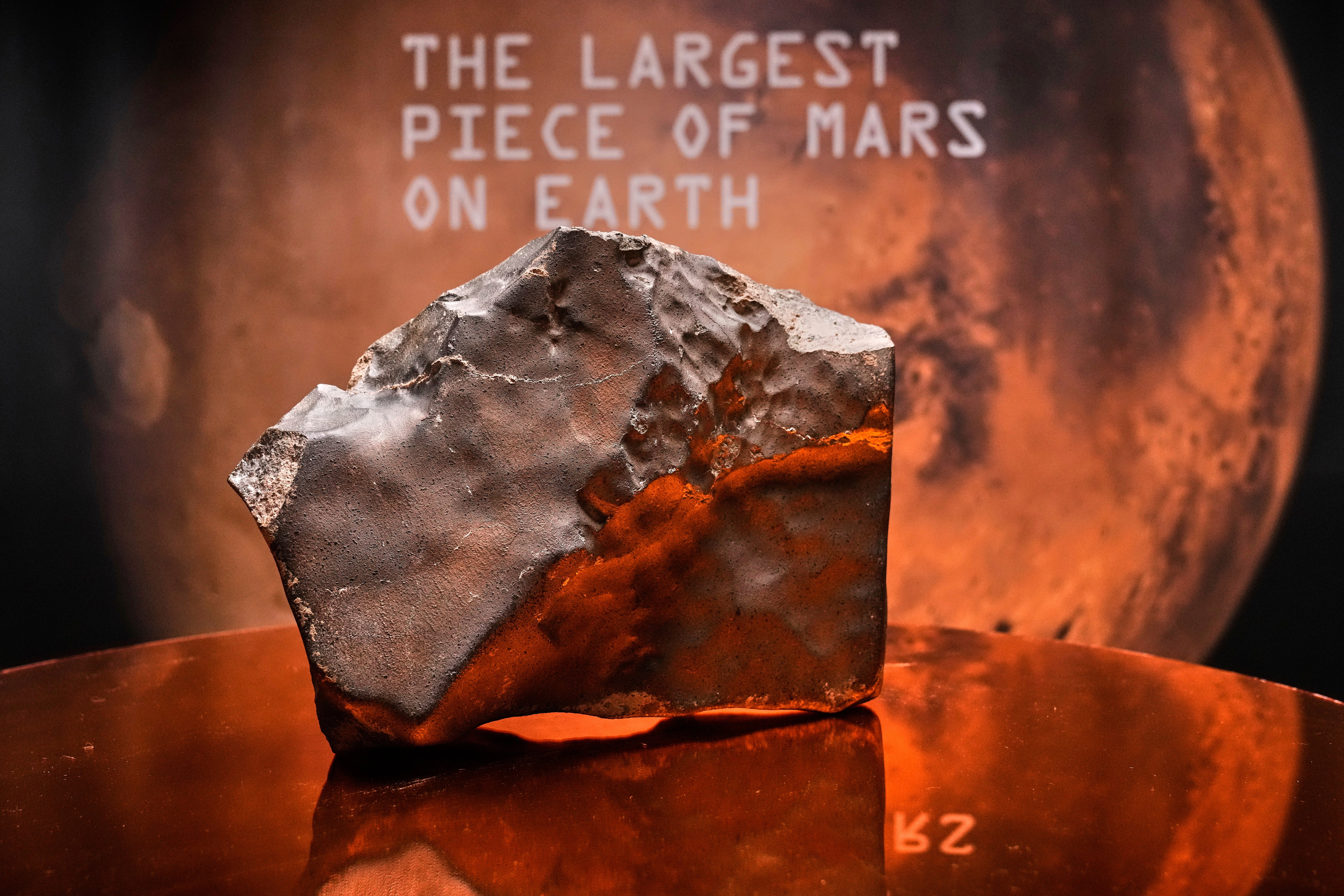A 54-pound (25-kilogram) meteorite – the largest Martian rock ever found on Earth –is now the subject of an investigation in Niger.
The meteorite fetched more than US$5 million (£3.71 million) at an auction in New York in July, setting a world record.
Now officials in the West African nation, where the rusty-red rock was unearthed, are probing what they term possible "illicit international trafficking", suggesting it may have been smuggled out of the country.
Sotheby’s, the auction house, said the rock, named NWA 16788, was propelled from Mars by a massive asteroid strike, travelling 140 million miles (225 million kilometres) to Earth.
It was discovered in the Sahara in northwestern Niger by an unnamed meteorite hunter in November 2023.
Neither the hunter’s nor the buyer’s identity was disclosed.
Meteorite hunting is a growing pastime in arid Saharan countries like Niger. Though meteorites can fall anywhere on Earth, the Sahara has become a prime spot for their discovery in part due to the favourable climate for their preservation.
Hunters often search for space rocks that can be sold to collectors or scientists. The rarest and most precious are from Mars and the moon.
According to the Heritage academic journal, the rock was sold to an international dealer before it ended up in a private gallery in Italy. A team of scientists from the University of Florence examined the rock in 2024 to learn more about its structure and where it came from before falling to Earth, the publication said.
The meteorite was also briefly on display in Rome before it was next seen in public in New York in July during the auction.
Why Niger is investigating
Following the sale, Niger raised questions about how the meteorite came to be sold at auction.
Niger's government announced an investigation in July to determine the circumstances of the meteorite's discovery and sale, saying in a statement it was “akin to illicit international trafficking”.

Last week, President Abdourahamane Tiani suspended the export of “precious stones, semi-precious stones and meteorites nationwide” in an effort to ensure their traceability.
Sotheby's said in a statement that the meteorite was exported from Niger and transported in line with all relevant international procedures.
“As with everything we sell, all necessary documentation was in order at each stage of its journey, in accordance with best practice and the requirements of the countries involved." the statement read.
Authorities in Niger did not respond to questions.
What international law says
While global agreements are in place to regulate the trade of cultural artifacts, there is ambiguity about whether meteorites are covered.
Patty Gerstenblith, a cultural heritage lawyer and expert on illicit trade, said that under the UNESCO convention on cultural property — which Niger and the U.S. have ratified — meteorites can qualify as cultural property.
However, Ms Gerstenblith said Niger needs to prove it owned the meteorite and that it was stolen, as illegal export from the country does not make the meteorite illegal in the U.S.
“If the meteorite was not stolen and if it was properly declared upon import into the U.S., then it would not seem that Niger can recover the meteorite,” she said.
Some countries, like Morocco, one of the leading sources of meteorites on the international market, require restitution if the objects are discovered on their territory.
However, enforcement has been challenging due to the vast desert areas and informal trading networks.







